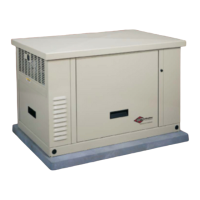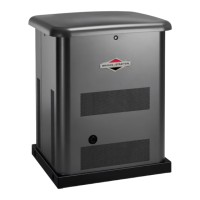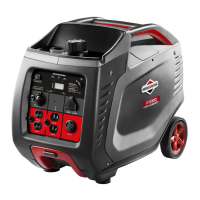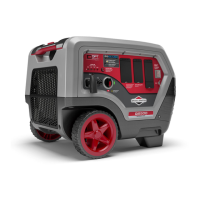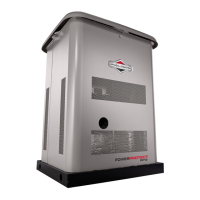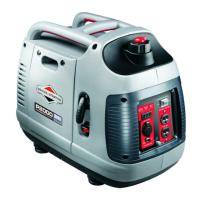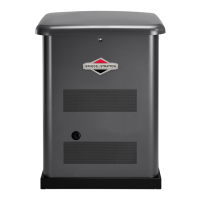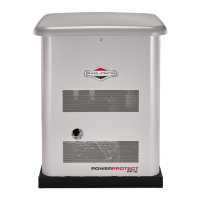12
1
FUEL SUPPLY
Depending on the generator model number, the
home standby generator was manufactured and
shipped to run on natural gas or liquid propane
vapor. No matter which type of fuel the generator
was manufactured to run on, it can be field
converted to operate on either type of fuel. When
troubleshooting, engine performance is
dependent on receiving the specific pressure
and volume of fuel under varying load conditions
with all gas appliances turned on and operating.
For fuel consumption and pressure
specifications, consult the installation manual.
For proper engine function, factors that are
inherent to each of these fuels, your location and
the duration of possible utility interruptions are
important considerations in the following fuel
guidelines:
• Use clean, dry fuel, free of moisture or
any particulate material. Using fuels
outside the following recommended
values may cause performance
problems.
• For engines set up to run on propane
vapor (LP), commercial grade HD5
propane with a minimum fuel energy of
2500 BTUs/ft3 with maximum propylene
content of 5% and butane and heavier
gas content of 2.5% and minimum
propane content of 90%.
Power Decrease at High Altitude or High
Temperature
Air density is less at high altitudes, resulting in
less available engine power. Specifically, engine
power will decrease 3.5% for each 1,000 feet
(300 meters) above sea level and 1% for each
10F (5.6C) above 77F (25C). These factors must
be considered when determining total generator
load.
WARNING
Propane and Natural Gas are
extremely flammable and explosive.
Fire or explosion can cause severe
burns or death.
• The home generator is equipped with an
automatic safety gas “fuel shut-off” valve.
• DO NOT operate the equipment if the “fuel
shut-off” valve is missing or inoperative.
WARNING
Propane and Natural Gas are
extremely flammable and explosive.
Fire or explosion can cause severe
burns or death.
• Install the fuel supply system according to
N.F.P.A 37 and other applicable fuel-gas
codes.
• Before placing the home generator into
service, the fuel system lines must be
properly purged and leak tested.
• After the generator is installed, you should
inspect the fuel system periodically.
• NO leakage is permitted.
• DO NOT operate engine if the smell of
fuel is present or other explosive condi-
tions exist.
• DO NOT smoke around the generator,
Wipe up any oil spills immediately. Ensure
that no combustible materials are left in
the generator compartment. Keep the
area near the generator clean and free of
debris.
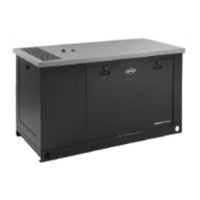
